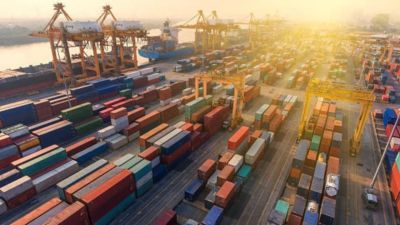Washington’s move came on the day 25 diplomats, officials and staffers from Indian and Pakistan High Commissions in Islamabad and Delhi returned home, bringing down the strength of the High Commissions from 55 to 30.

US State Department spokesperson Tammy Bruce told the press that Washington is reaching out to both India and Pakistan “regarding the Kashmir situation” and telling them “not to escalate the situation”.
Secretary of State Marco Rubio “expects to speak with the Foreign Ministers of Pakistan and India as early as today or tomorrow. He is encouraging other national leaders and Foreign Ministers to reach out to the countries on this issue,” Bruce said.
“Every day action is being taken. In this case, the Secretary speaking directly to his counterparts in India and Pakistan… We expect… the impact he has usually had with the individuals he has spoken with, and certainly with President Trump’s leadership, India and Pakistan having those conversations. It’s very important for them,” Bruce said.
To a question on Pakistan Defence Minister Khawaja Asif’s remark that Pakistan has “been doing this dirty work for the United States” — Asif’s admission of his country’s terror links — Bruce said, “The only thing I am really prepared to discuss here is the fact that the Secretary of State is going to be speaking with the Foreign Ministers of both countries.”
“What I can tell you… we are also monitoring the developments across the board in that region… and we, as you know, at multiple levels, I have to say, are in touch with the governments of India and Pakistan, not just at the Foreign Minister level, certainly, but at multiple levels. We, of course, are encouraging all parties to work together for a responsible solution. The world is watching this. But I have no additional details in that regard.”
Story continues below this ad
Washington’s call for de-escalation comes at a time when the UK and Saudi Arabia have made calls to Delhi and Islamabad. UK’s Foreign Secretary David Lammy and Saudi Foreign Minister Faisal bin Farhan Al Saud have spoken to External Affairs Minister S Jaishankar and Pakistan’s Deputy Prime Minister and Foreign Minister Ishaq Dar.
Iran Foreign Minister Abbas Araghchi has also offered to mediate between the two countries.
UN Secretary General Antonio Guterres, who also spoke to Jaishankar and Dar, too expressed deep concern over the rising tensions between India and Pakistan and underlined the need to avoid a confrontation that could result in tragic consequences. The UN chief, his spokesperson said in New York, offered his good offices to support any de-escalation efforts.
Calls for restraint and de-escalation are not new. In the past too, in the wake of terror attacks, there have been similar calls.
Story continues below this ad
In 2019, after the Pulwama terror attack, Mike Pompeo, the then US Secretary of State, had spoken to Sushma Swaraj, the then External Affairs Minister, calling for de-escalation and exercising restraint.
In 2016, after the Uri terror attack, John Kerry, who was then US Secretary of State, had telephoned Sushma Swaraj and called for de-escalation.
Both times, India carried retaliatory strikes against Pakistan.









